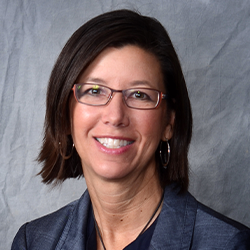The transition from quiet quitting to quiet hiring
Written by: Brad Shuck, Ph.D, Professor of Human Resources and Organizational Development, University of Louisville, Co-founder, OrgVitals; Betsy Schneider, Vice President, Marketing, BI WORLDWIDE
(View Author Bio)
Over the last few years, there’s been a lot of conversation around quiet quitting. This is when an employee disengages and distances themselves from their work responsibilities without formally resigning. Instead of coming out and saying that they’re dissatisfied or resigning, quiet quitters become disinterested, less productive and less involved in their work. This subtle – and quiet – disengagement can be challenging to detect since there may not always be obvious signs of dissatisfaction or the intent to leave.
Quiet quitting is a lose-lose situation for both companies and employees.

Now that companies have a greater focus on retaining talent because of an increased talent shortage, the trend has shifted from quiet quitting to quiet hiring. Smart organizations embrace this idea; it brings new skills and capabilities to the company without adding new full-time employees.
And quiet hiring is gaining traction. This strategy addresses staffing shortages by intentionally upskilling employees. Providing training creates an opportunity for current employees to expand their contribution to the organization and reengage.1 To truly benefit from quiet hiring, organizations need to capitalize on developing the talent they already have on their teams.
More employees are taking nonlinear career paths and organizations are having trouble meeting their talent needs through traditional hiring methods. So quiet hiring is a sustainable solution.2 Quiet hiring provides tangible benefits to the organization such as happier employees, better retention goals and reduced turnover costs.
Frontline leaders play a critical role in identifying and offering opportunities for employees to grow and develop through coaching and feedback. By expanding the talent they already have, organizations can create a more engaged and productive workforce. BI WORLDWIDE has developed an innovative rewards marketplace to support quiet hiring and a more engaged workforce. Mastery MarketplaceTM offers more than 17,000 curated courses to level up at work or home.
To fully utilize Mastery MarketplaceTM, companies provide employees with points for courses like negotiation, leadership, coding or communications to apply in the workplace. Courses are taught by experts in their fields and provide immediate benefit to the quiet hiring trend.
Points are given as a reward or recognition and employees select what courses would have the biggest impact in their career or personal life. Employees who say their jobs allow them to master skills that are important to them are 15x more likely to feel inspired at work.3 Inspiration and engagement are huge benefits of the quiet hiring movement and are a real opportunity to drive purpose and belonging.
____________________
Organizations will need to rethink their approach to recruitment and retention and embrace a people-first mindset. At a time when skilled employees are hard to find, quiet hiring could be an industry game-changer.1 It will be incredible to watch how companies shift to help their employees meet the organization’s ever-evolving needs.
____________________
1. The real way to quiet hire, Mark Marone, Harvard Business Review, 2023.
2. It’s time to get creative with quiet hiring, Laurie Chamberlin, Forbes Magazine, 2023.
3. Global New Rules of Engagement® Study, BI WORLDWIDE, 2023.
The best way to get started is to get in touch.

















